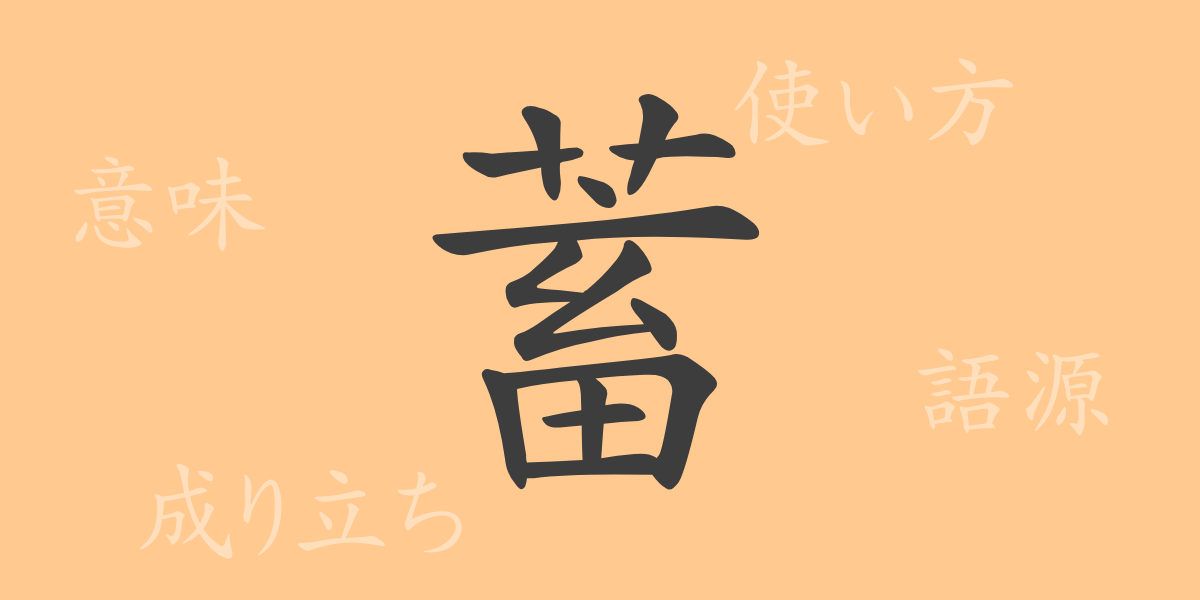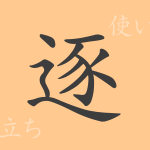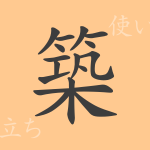The Japanese language features delicate characters that express emotions, landscapes, and philosophical concepts. Among them, the kanji “蓄(ちく),” used in various aspects of life, is deeply ingrained in our daily experiences. This article delves into the history, meaning, usage, and cultural impact of the character “蓄.”
Origins of “蓄(ちく)”
The kanji “蓄” combines the radical “艹” (meaning grass) and the character “畜” (meaning to store or accumulate). This combination originated from the idea of storing grass, evolving to represent broader concepts such as saving or accumulation, as seen in terms such as “貯蓄(ちょちく)” (savings) and “蓄積(ちくせき)” (accumulation).
Meaning and Usage of “蓄(ちく)”
“蓄” conveys the idea of storing or accumulating, used for saving money, resources, knowledge, and experiences. It also appears in terms such as “蓄音機(ちくおんき)” (phonograph), which refers to a device that stores sound.
Readings, Stroke Count, and Radical of “蓄(ちく)”
“蓄” has various readings and uses in Japanese:
- Readings: On’yomi “チク” (chiku), no specific Kun’yomi.
- Stroke Count: 16 strokes.
- Radical: 艹 (くさかんむり), indicating plants or grass.
Idioms, Phrases, and Proverbs Using “蓄(ちく)”
The kanji “蓄” plays an essential role in many Japanese idioms and phrases:
- 貯蓄(ちょちく): Saving money.
- 蓄積(ちくせき): Accumulating experiences or knowledge.
- 蓄音機(ちくおんき): A device that records and reproduces sound.
These terms highlight the value of accumulating and symbolize the process of growth through time and effort.
Conclusion on “蓄(ちく)”
The meanings embedded in a single kanji reflect a nation’s culture and values. “蓄” represents the Japanese spirit of valuing what is cherished, emphasizing the importance of gradual accumulation. Through “蓄,” we are quietly reminded of the significance of building up slowly over time.

























